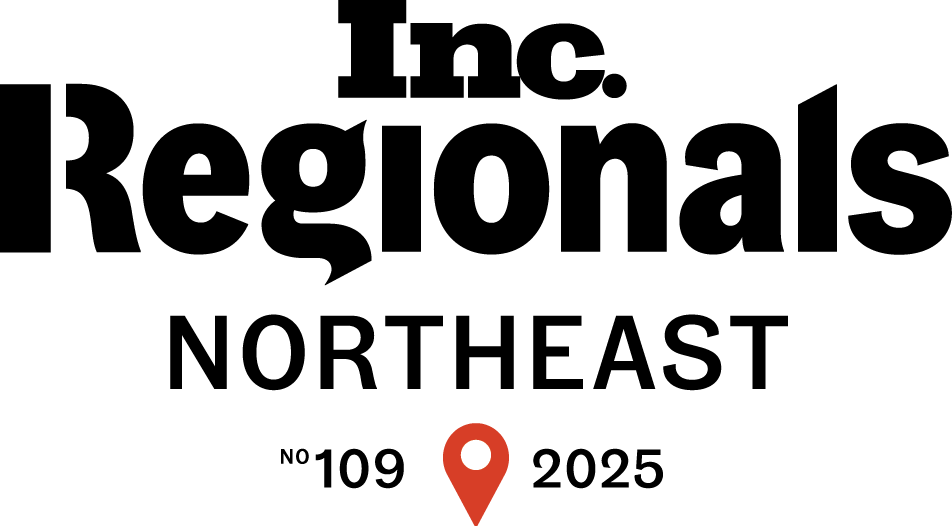Inside this Edition of the Freedom Energy Logistics Muni Minute
Freedom Energy Logistics | October 2023

Brian White
Municipal Program Director
In our previous Massachusetts Muni Minute, Brian discussed five energy challenges faced by municipal clients. We are delighted to share the next five challenges our clients have shared based on their experiences with energy initiatives, budgets, and efficiency.
Before we present the next five topics, let’s quickly recap what we covered in part one:
1. Limited Resources
2. Sustainability Requirements
3. Financial Constraints
4. Confusing Contract Terms & Conditions
5. Community Support
And now, let’s explore the next five challenges:
6. Account Status (or lack of):
Managing utility invoices for cities, towns, housing authorities, and water & sewer departments can be a real chore. That’s where Freedom Energy comes in, acting as an integral part of your team. We offer comprehensive account management services.
7. Limited Energy Expertise
Many municipal organizations lack in-depth energy expertise. Freedom Energy’s specialized Municipal Team continuously monitors the energy markets, offering informed guidance on energy procurement strategies and contract terms.
8. Markets are Volatile
Energy markets can be as unpredictable as New England weather. At Freedom Energy, we provide insights and data to help you make sound decisions. We’ll keep you informed about significant price fluctuations that might impact your energy costs.
9. Information Overload
Municipal leaders face a deluge of information regarding sustainability and emissions reduction. Freedom Energy, with its extensive experience, helps define and recommend energy and sustainability strategies tailored to your specific goals.
10. Consistency & Dependability
Municipal teams often experience turnover, and knowledge gaps can be a challenge. That’s why Freedom Energy’s Municipal Team is here to ensure the retention of crucial knowledge and provide consistent support for all your energy needs.
Ready to tackle these energy challenges with us? Reach out to Brian White to find solutions for your municipality’s unique needs.

Tyler Johnson
Senior Salesforce Administrator
At Freedom Energy, we’re dedicated to cyber security. Our priority is protecting sensitive data and educating our team about evolving threats. One such challenge is Generative AI, which elevates cyber attacks by mimicking targets’ style and tone.
Generative AI is creative, generating content from data. But it can also create fake articles and phishing emails by imitating communication styles. Phishing, a common threat, tricks victims into revealing data.
Generative AI makes phishing harder to spot by mimicking targets’ writing styles and branding, crafting convincing emails.
To combat these advanced phishing attacks, it’s crucial to stay vigilant and take preventive measures. At Freedom Energy, we adhere to the following security practices:
- Verify Sender Information: Always check the sender’s email address and domain carefully before opening any email or clicking on links.
- Never Share Sensitive Information: Avoid providing personal or financial information in response to email requests without verifying their source.
- Use Strong Passwords and Passphrases: Employ robust password protection and consider using passphrases for added security.
- Enable Multi-Factor Authentication: Whenever possible, use multi-factor authentication to fortify account security.
- Report Suspicious Activity: If you encounter a suspicious email, promptly report it to your IT department.
Cyber security is a collective effort, and we all play a part in safeguarding our organizations. At Freedom Energy, we remain committed to maintaining a secure environment and ensuring that our employees are well-informed about cyber security best practices. Stay vigilant, stay secure.
To read more you can view the full article here in our September 2023 Newsletter.

Howard Plante
VP of Procurement
Over the past two years, we’ve observed significant fluctuations in electricity futures prices in New England, influenced by a range of factors, including:
- Weather forecasts
- Natural gas prices and storage volumes
- LNG exports
- Speculation of supply and demand
- Developments such as the Russia-Ukraine war
Calendar Year 2023: In mid-August of 2022, electricity for the calendar year 2023 was trading at 13.25 cents per kWh (energy-only). However, by the end of 2022, that same electricity could be purchased for as low as 9 cents per kWh.
Calendar Year 2024: Prices for 2024 reached a high of 10.29 cents in August of 2022 but declined throughout the year. They started 2023 at 8.85 cents/kWh but rapidly fell to 6.54 cents by January 27, representing a 2.5 cent drop in just three weeks.
Winter Volatility: The winter months of December, January, and February typically yield the most volatility in price swings. In late August of 2022, January and February of 2023 reached highs of 33 cents/kWh, significantly impacting the 2023 calendar year price. By the end of the year, January and February for 2023 had fallen to 16 and 18 cents, respectively—half the price they were trading at just four months prior. Looking ahead to January and February of 2024, they are currently trading at approximately 12 cents, contributing to a decrease in the calendar year price average.
Future Outlook: We anticipate continued price volatility going forward, influenced by a multitude of factors. While 2024 prices are not as low as they were in 2020, it is unlikely that we will return to those levels in the next few years.
Note: The electricity prices referenced here are energy-only and do not reflect a total electricity supply price that includes capacity, ancillaries, RECs, etc.
Table 1: Electricity Price Trends (2024, 2025, and 2026)

In summary, the past two years have seen significant fluctuations in electricity futures prices in New England, driven by various factors, with winter months contributing to heightened volatility. These trends provide valuable insights into the dynamics of the energy market in the region, and the outlook suggests that price stability may remain elusive in the near future.

Grant Opportunities
Upcoming Deadlines
MassDOT Shared Streets and Spaces Grant Program
Deadline: October 31
The Shared Streets and Spaces Grant Program, managed by the Massachusetts Department of Transportation (MassDOT), offers funding to municipalities and public transit authorities. This funding is aimed at swiftly implementing enhancements to various public spaces, such as plazas, sidewalks, streets, and more. These improvements are meant to promote public health, safe mobility, and local commerce. Eligible applicants are limited to municipalities and public transit authorities, and the application process is online.
The Department of Energy Resources (DOER) has launched a program called “Climate Leader Communities” to help cities and towns achieve their greenhouse gas reduction goals. This program is an extension of the successful Green Communities Designation and Grant program.
To become a “Climate Leader Community,” municipalities need to meet specific requirements, like adopting a policy that promotes zero-emission vehicles, using a specialized building code, and committing to stop using fossil fuels in municipal buildings and fleets by 2050. This aligns with recent climate laws and plans.
DOER is providing technical assistance to municipalities that need help creating plans to reduce carbon emissions. Communities can express their interest in getting this support. Once certified as Climate Leader Communities, they can apply for grants to fund clean energy projects like solar panels, electric vehicle charging, community engagement efforts, and even hiring sustainability coordinators for their town or city.
Municipal Energy Technical Assistance Grants Available
Deadline: November 17
The Massachusetts Department of Energy Resources (DOER) is currently accepting applications for Municipal Energy Technical Assistance (META) grants. These grants are for third-party organizations that help municipalities, regional school districts, and water/wastewater districts with energy projects and related studies. These grants are available to all Massachusetts municipalities, including those without a Green Community designation.











Connect With Us